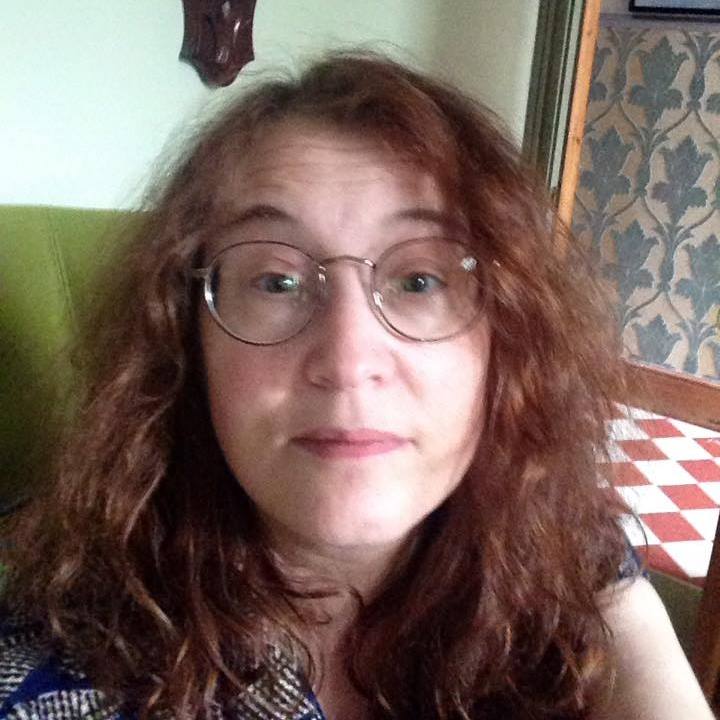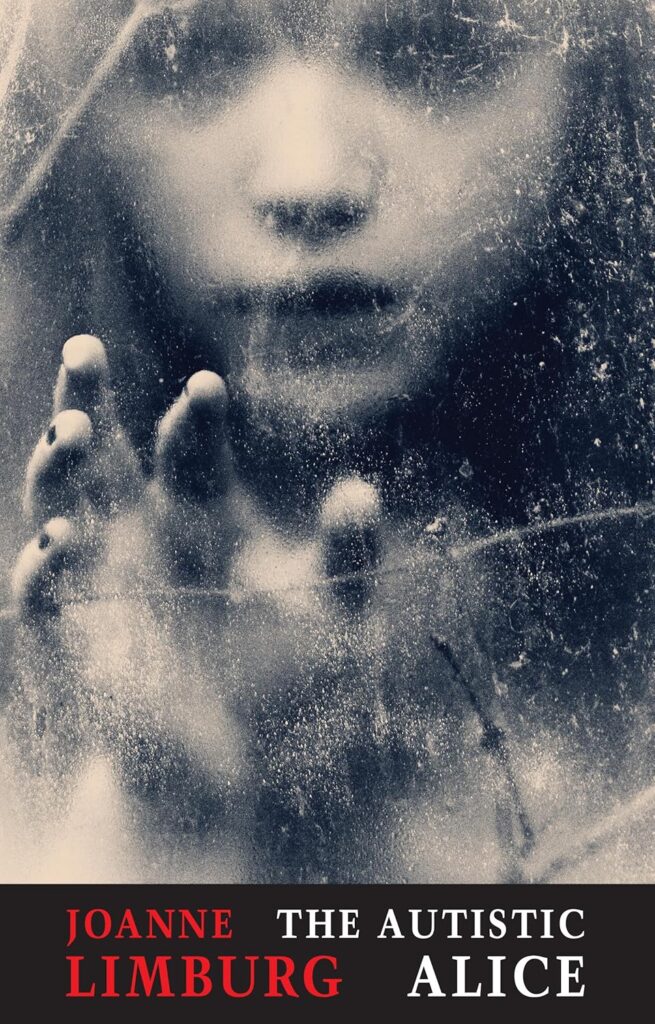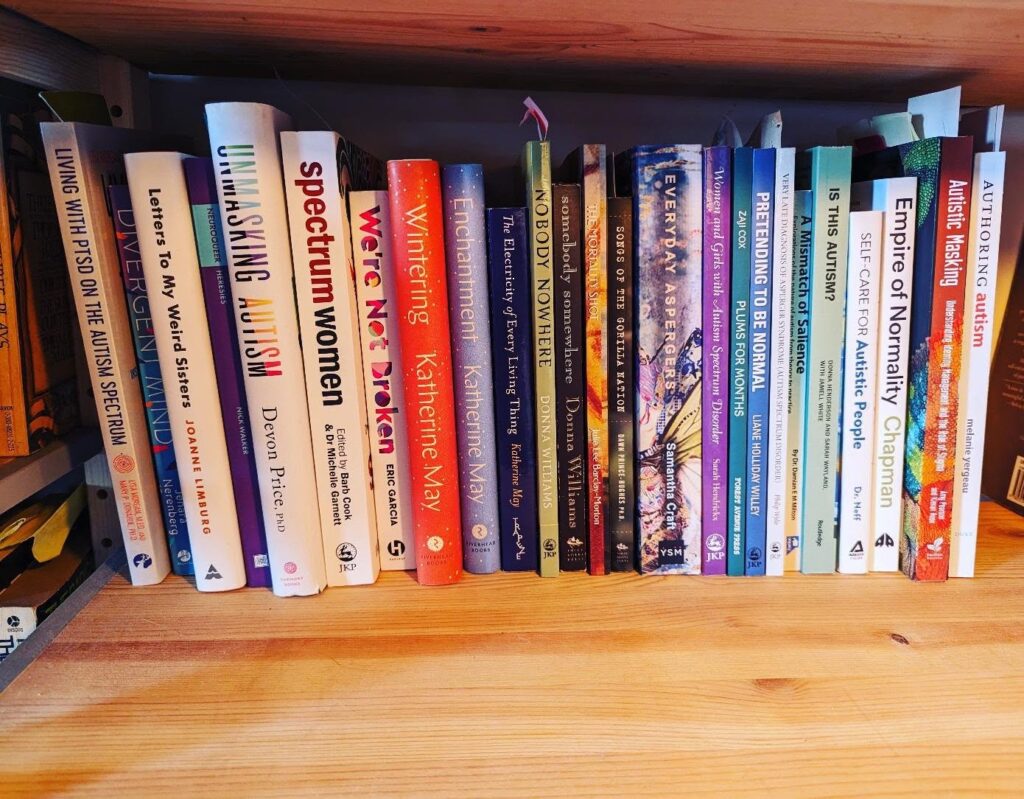
LISA DART – SURVIVAL POETRY AND THE VOICES OF EXPERIENCE
I interviewed Lisa Dart, finalist in the Grolier, Aesthetica and Troubadour Poetry Prizes and author of The Linguistics of Light (poems, Salt, 2008), Fathom (prose


I interviewed Joanne Limburg whose poetry collection Feminismo was shortlisted for the Forward Prize for Best First Collection; another collection, Paraphernalia, was a Poetry Book Society Recommendation. Joanne has also written a collection for children, Bookside Down, which was shortlisted for the CLPE Poetry Prize. More recently Joanne has written The Autistic Alice (poems) and Letters to my Weird Sisters: On Autism and Feminism (prose).
Joanne’s first prose piece was: The Woman Who Thought Too Much, a memoir about OCD, anxiety and poetry. She also has two other published books: A Want of Kindness and a second memoir: Small Pieces: A Book of Lamentations.
Leslie: Tell us about The Autistic Alice and The Woman Who Thought Too Much. What types of writing are they? How do they differ and how do they complement each other (in the writing process & as creations)? What are the key experiences/feelings you’d hope a reader might take away from these books?
Joanne: The Autistic Alice is a poetry collection, made up chiefly of two sequences, ‘The Autistic Alice’ and ‘The Oxygen Man’. The second is about losing my brother to suicide, and the first seeks to recover an undiagnosed autistic childhood self by using Lewis Carroll’s Alice books. I was obsessed with them as a child and identified with the Alice of Carroll and Tenniel, all logical and unsmiling. The Woman Who Thought Too Much is the first of three non-fiction books I’ve published, the others being Small Pieces: A Book of Lamentations and Letters to my Weird Sisters: On Autism and Feminism. TWWTTM is unusual in that in this case I approached the subject matter – OCD – in prose first and only addressed it in poetry for a Radio 4 commission years later. Usually poetry is the place where I go to process my experience in the first instance: The Oxygen Man preceded Small Pieces and The Autistic Alice preceded Letters. I guess what the reader takes is always going to be up to the reader, but what I am always trying to do is communicate, from the inside, an experience that people might feel is alien to them, and at the same time to offer connection and company to those who share it.
Leslie: Significant parts of your writing could be described as confessional (as in Lowell & Plath). In this genre, how do you avoid writing that is therapeutic, over-emotional or anecdotal? How do you adapt personal experience to the requirements of poetic, fictional or documentary form?

Joanne: Form, technique, and form again. When you write you are making something, so I keep that in mind.
Leslie: Tell us about your other writings. How has writing a novel and a memoir differed from writing poetry, non-fiction (or the other types of writing you’ve turned your hand to)?
Joanne: Memoir I would file under non-fiction, but the experience of writing fiction was very different. I had actually set out to write a non-fiction book about Queen Anne and maternal loss, but when I came to look at her story, I realised two things: firstly, that in order to get to the texture of experience, which is what interested me, I would have to fictionalise to some extent; secondly, that her life contained a very dynamic and natural story arc, a tragic arc, in that she betrayed her father, suffered terribly and understood that suffering to be a punishment. As I’m not a natural fiction writer and hate making mistakes, I over-researched like mad. I also incorporated real documents into the text, didn’t use any language unavailable to late-17th century speakers, and took Anne’s voice from her letters and used it to write first-person seconds in which she spoke to God. If I write fiction again – and it will be from a real story – I will try to lighten up a bit…
Leslie: What advice would you give to people aiming to write for children and/or historical fiction?
Joanne: For children, think like a child. For historical fiction, research but try not to overdo it!
Leslie: Can you tell us about your life experience as an autistic person? What were the most difficult aspects of behaviour, cognition, self-image you experienced and how did other people react you? How have you come to terms with ‘being as I am’?
Joanne: This is a hard question to answer, as I’ve never been any other kind of person. I have had to learn to function as a social being within neurotypical society, and this is never wholly intuitive, so I have to work very hard when I’m around most people; with other autistic people, not a problem. After I was diagnosed, it was a relief to know that I am a perfectly OK autistic person and not an inadequate normal person. Yes, there are problems, and people do often react in a negative way to you unless you mask, before people are often uncomfortable with difference, especially if they can’t define it; but for the most part, we’re talking about a difference rather than a defect. My heightened sensory response to the world brings joy as well as difficulty. My strengths as a writer and a person are just as bound up with my autism as my weaknesses are.

Leslie: What are the big lessons society can learn from people with autism?
Joanne: That the scope of human difference is infinite and wondrous.
Leslie: What have you learned about writing through teaching it to other people?
Joanne: That every writer’s mind works differently, so I always hesitate to prescribe method. For example, some people draft many times, some don’t. Some work steadily over a long period and some work in short, sharp bursts. Writers need to get to know themselves as much as they need to learn about genres and techniques of writing.
ABOUT LESLIE TATE’S BOOKS:

I interviewed Lisa Dart, finalist in the Grolier, Aesthetica and Troubadour Poetry Prizes and author of The Linguistics of Light (poems, Salt, 2008), Fathom (prose

I interviewed writer Julia Lee Barclay-Morton about her experience of autism. Julia began as an experimental dramatist in New York, moving to the UK to

I interviewed Gillean McDougall from Glasgow, who edited the collaborative projects Honest Error (on Charles Rennie Mackintosh and his wife Margaret Macdonald) and Writing the

I interviewed French writer Delphine de Vigan, whose book, No et moi, won the prestigious Prix des libraires. Other books of hers have won a clutch

I interviewed Joanne Limburg whose poetry collection Feminismo was shortlisted for the Forward Prize for Best First Collection; another collection, Paraphernalia, was a Poetry Book Society Recommendation. Joanne
| Cookie | Duration | Description |
|---|---|---|
| cookielawinfo-checkbox-analytics | 11 months | This cookie is set by GDPR Cookie Consent plugin. The cookie is used to store the user consent for the cookies in the category "Analytics". |
| cookielawinfo-checkbox-functional | 11 months | The cookie is set by GDPR cookie consent to record the user consent for the cookies in the category "Functional". |
| cookielawinfo-checkbox-necessary | 11 months | This cookie is set by GDPR Cookie Consent plugin. The cookies is used to store the user consent for the cookies in the category "Necessary". |
| cookielawinfo-checkbox-others | 11 months | This cookie is set by GDPR Cookie Consent plugin. The cookie is used to store the user consent for the cookies in the category "Other. |
| cookielawinfo-checkbox-performance | 11 months | This cookie is set by GDPR Cookie Consent plugin. The cookie is used to store the user consent for the cookies in the category "Performance". |
| viewed_cookie_policy | 11 months | The cookie is set by the GDPR Cookie Consent plugin and is used to store whether or not user has consented to the use of cookies. It does not store any personal data. |